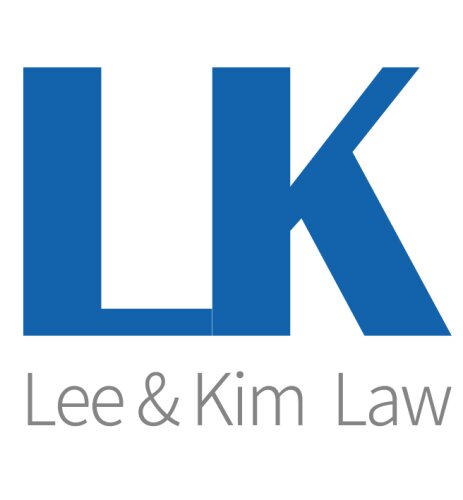Best Real Estate Due Diligence Lawyers in South Korea
Share your needs with us, get contacted by law firms.
Free. Takes 2 min.
Free Guide to Hiring a Real Estate Lawyer
Or refine your search by selecting a city:
List of the best lawyers in South Korea
About Real Estate Due Diligence Law in South Korea
Real estate due diligence in South Korea is an essential process for anyone involved in buying, selling, or leasing property. It involves a thorough investigation to assess all legal, financial, and structural elements of the property. Due diligence helps in identifying potential risks and ensures that there are no legal encumbrances or disputes associated with the property. This process includes verifying land registration, zoning issues, structure safety, and ensuring compliance with local real estate laws and regulations.
Why You May Need a Lawyer
While it is possible to conduct due diligence independently, legal complexities and the significant financial stakes often necessitate professional assistance. Here are common scenarios where a legal expert's guidance is invaluable:
- Negotiating complex property transactions.
- Understanding and interpreting zoning laws and land-use policies.
- Identifying potential legal issues, such as undisclosed liabilities or disputes.
- Ensuring compliance with environmental and safety regulations.
- Drafting and reviewing contracts and agreements.
- Facilitating foreign property investment, where language barriers and unfamiliarity with local laws can pose challenges.
Local Laws Overview
The real estate sector in South Korea is primarily governed by the Korean Civil Act, Real Estate Registration Act, and the Building Act, among others. Key legal elements include:
- Land Registration: All property transactions must be registered with the appropriate authorities to be legally enforceable.
- Zoning Regulations: These dictate how land can be used or developed, impacting potential construction or usage plans.
- Contract Laws: All agreements related to transactions must comply with standards set out in the Korean Civil Act, ensuring legality and enforceability.
- Building Permits and Inspection: These are mandatory prior to any construction to ensure safety and compliance with local standards.
Frequently Asked Questions
What is the first step in real estate due diligence?
Typically, the first step is conducting a title search to verify ownership and check for any liens or encumbrances on the property.
How long does the due diligence process take in South Korea?
It varies based on property type and complexity, but generally, it can take anywhere from a few weeks to a few months.
Can foreigners buy property in South Korea?
Yes, foreigners can buy property, but there are specific reporting requirements and regulations, particularly for agricultural and forest land.
What are common red flags during due diligence?
Undisclosed liabilities, zoning inconsistencies, legal disputes over ownership, and non-compliance with building codes are common red flags.
Is a lawyer necessary for residential property purchases?
While not legally mandated, hiring a lawyer is advisable to navigate legal complexities and ensure a smooth transaction.
How does due diligence relate to property value assessment?
Due diligence helps in assessing factors that might affect property value, such as legal issues, structural integrity, and compliance with local laws.
What should I verify about the seller?
Confirm the seller's legal ownership of the property, their authority to sell, and ensure there are no legal disputes involving the seller.
Are there tax considerations in real estate due diligence?
Yes, understanding property taxes, capital gains taxes, and potential tax benefits is a crucial part of the due diligence process.
What happens if issues are found during due diligence?
Identified issues can either be resolved by the seller, negotiated into the purchase agreement, or lead to a decision to terminate the transaction.
Can I renegotiate terms after due diligence?
If significant issues are found, buyers often renegotiate the purchase price or terms to address the newly discovered risks or liabilities.
Additional Resources
Here are some resources that might be helpful:
- Ministry of Land, Infrastructure and Transport: Provides information on regulations and policies governing real estate.
- Legal Aid Centers: Offer free legal advice and can assist with understanding local real estate laws.
- Korea Real Estate Board: Offers insights and statistics on the real estate market in South Korea.
- Seoul Global Center: A government-run support service for foreigners, including guidance on legal matters.
Next Steps
If you're seeking legal assistance for real estate due diligence in South Korea, follow these steps:
- Research: Begin by researching and shortlisting experienced real estate lawyers or law firms that specialize in South Korean property law.
- Consultations: Arrange initial consultations to discuss your needs, compare services, and determine compatibility.
- Retain a Lawyer: Once you find a suitable lawyer, formally engage them by signing a retainer agreement.
- Gather Documents: Collect all relevant documents (title deeds, zoning information, existing contracts) to facilitate a comprehensive review.
- Proceed with Due Diligence: Work with your lawyer to conduct the due diligence process, address any issues, and finalize your transaction confidently.
Lawzana helps you find the best lawyers and law firms in South Korea through a curated and pre-screened list of qualified legal professionals. Our platform offers rankings and detailed profiles of attorneys and law firms, allowing you to compare based on practice areas, including Real Estate Due Diligence, experience, and client feedback.
Each profile includes a description of the firm's areas of practice, client reviews, team members and partners, year of establishment, spoken languages, office locations, contact information, social media presence, and any published articles or resources. Most firms on our platform speak English and are experienced in both local and international legal matters.
Get a quote from top-rated law firms in South Korea — quickly, securely, and without unnecessary hassle.
Disclaimer:
The information provided on this page is for general informational purposes only and does not constitute legal advice. While we strive to ensure the accuracy and relevance of the content, legal information may change over time, and interpretations of the law can vary. You should always consult with a qualified legal professional for advice specific to your situation.
We disclaim all liability for actions taken or not taken based on the content of this page. If you believe any information is incorrect or outdated, please contact us, and we will review and update it where appropriate.
Browse real estate due diligence law firms by city in South Korea
Refine your search by selecting a city.















